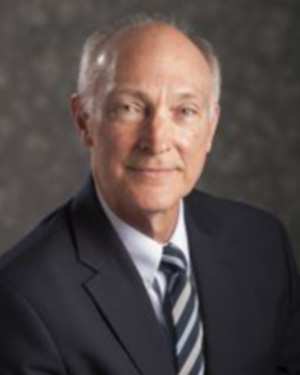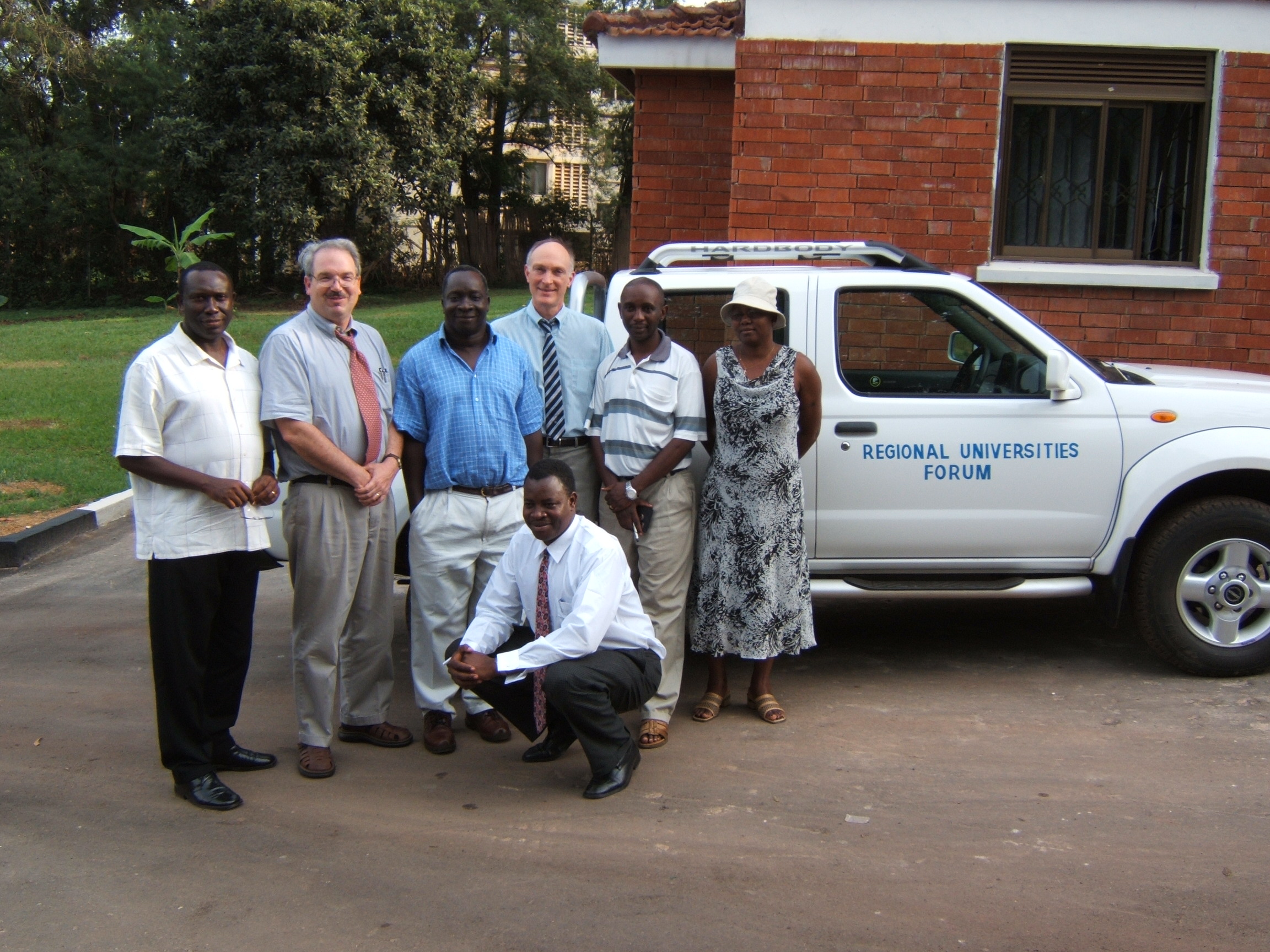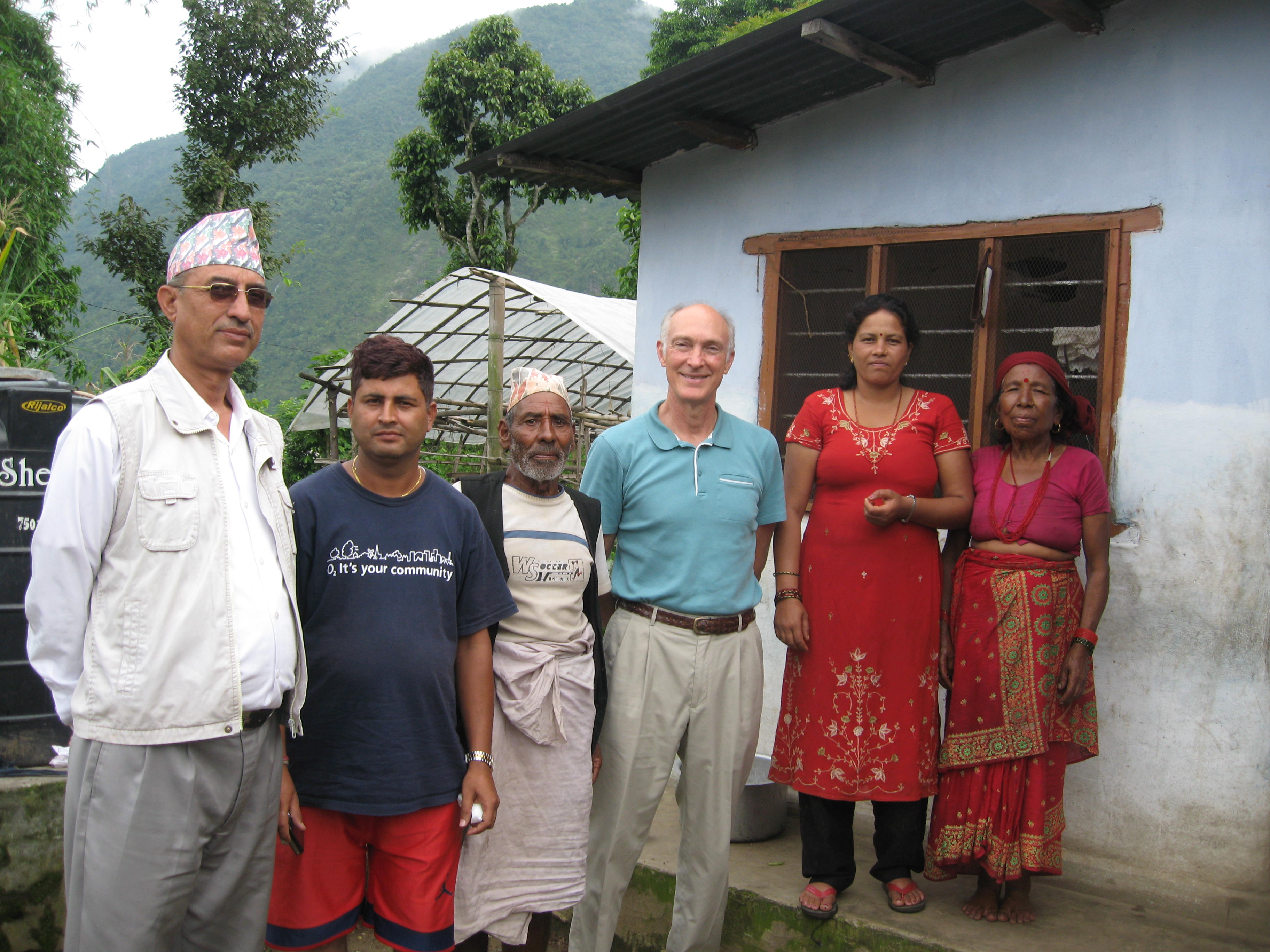FSG Co-Director, Eric Crawford, retires after productive lifetime of service
After 43 years, Professor Emeritus Crawford, retires and celebrates a productive and illustrious career
 East Lansing, MI – Long-time director of the Food Security Group, Professor Emeritus Eric Crawford, retired last December. He served in numerous capacities during his tenure in the Department of Agricultural, Food, and Resource Economics (AFRE), and touched the hearts of many students and colleagues, all while creating a large body of evidence-based research that has helped to shaped multiple nations’ agricultural programs.
East Lansing, MI – Long-time director of the Food Security Group, Professor Emeritus Eric Crawford, retired last December. He served in numerous capacities during his tenure in the Department of Agricultural, Food, and Resource Economics (AFRE), and touched the hearts of many students and colleagues, all while creating a large body of evidence-based research that has helped to shaped multiple nations’ agricultural programs.
AFRE Chairperson, Scott Swinton reminisces, “I’ve aways admired Eric’s professional versatility and competence. He has worked in both francophone and anglophone Africa and led a project based in Afghanistan. His even-tempered competence with AFRE projects has made him core to FSG as well as the ‘who-you-gonna-call’ guy when MSU found itself with other international projects that needed guidance.”
A special event to celebrate his career will take place on Monday March 13, including a program of speakers from 3:00-4:00pm in Room 48 of Morrill Hall of Agriculture, followed by a reception in the Atrium. It will feature Crawford and several speakers whose remarks will touch on his contributions as international development economist, project leader, teacher, advisor, and graduate program director.
 From 2006 to 2022, he served as Co-Director of the Food Security Group (FSG), AFRE’s special unit for agricultural international development, keeping a calm hand on the rudder of the enduring program.
From 2006 to 2022, he served as Co-Director of the Food Security Group (FSG), AFRE’s special unit for agricultural international development, keeping a calm hand on the rudder of the enduring program.
FSG Co-Director, David Tschirley, had this to say about working with Crawford, “Eric embodied character, fairness, high but quiet competence, sharp intellect, calm, and teamwork. Working with him was seamless—he seemed to bring no misplaced ego to the work—and he made everyone else more productive. He also had an enormous capacity for work and brought a dry humor to most everything he did. I’m really grateful to have been able to work with him as FSG co-director for the past several years.”
Before coming to the department, Crawford initially spent time in Kenya as a Peace Corps Volunteer. He says of his early career, “I came into the department in 1979, and at that time Carl Eicher was one of the senior faculty members who worked on international development, particularly in Africa. He had at least one large project funded by USAID… that had some core funding and then supported activities in different countries in Africa. One of which was in what was then called Upper Volta, where we had a big team in the field. Carl asked me to work with the team to help with the write up of some of the things that they did. I got a chance to go out to Upper Volta and visit the project area, and that was a lot of fun.”
.jpg?language_id=1) Crawford was involved in almost every large AFRE international development grant during the last 40 years, including all three of the 10-year Food Security Cooperative Agreements and both the Innovation Lab for Food Security Policy as well as its current incarnation, the Innovation Lab for Food Security Policy Research, Capacity, and Influence. “In his 43 years at MSU, Eric’s career has spanned several phases of international development economic research and policy. Joining Carl Eicher, Harold Riley, Glenn Johnson, and Jim Shaffer in the Dept. of Agricultural Economics, he arrived at the height of the Green Revolution, studying how new crop varieties and mechanization fit into existing farming systems,” said Swinton. “He was joined by John Staatz, Mike Weber, Dave Tschirley, Thom Jayne and others, as the foci of agricultural economic development shifted to market performance, economic efficiency, and governance. More recently, a new generation of MSU ag development economists has taken on program evaluation and transformation of the agri-food supply chain. Eric has contributed to every phase.”
Crawford was involved in almost every large AFRE international development grant during the last 40 years, including all three of the 10-year Food Security Cooperative Agreements and both the Innovation Lab for Food Security Policy as well as its current incarnation, the Innovation Lab for Food Security Policy Research, Capacity, and Influence. “In his 43 years at MSU, Eric’s career has spanned several phases of international development economic research and policy. Joining Carl Eicher, Harold Riley, Glenn Johnson, and Jim Shaffer in the Dept. of Agricultural Economics, he arrived at the height of the Green Revolution, studying how new crop varieties and mechanization fit into existing farming systems,” said Swinton. “He was joined by John Staatz, Mike Weber, Dave Tschirley, Thom Jayne and others, as the foci of agricultural economic development shifted to market performance, economic efficiency, and governance. More recently, a new generation of MSU ag development economists has taken on program evaluation and transformation of the agri-food supply chain. Eric has contributed to every phase.”
While Crawford was a researcher and a leader in those projects, he is also a beloved teacher and mentor for many students who have passed through these halls, including some who continue to contribute to the work that MSU does today. “Many MSU graduate students remember Eric from his 14 years as Director of Graduate Studies (1992-2006), during which Cook Hall got its first renovation,” said Swinton.
Associate Professor, William Burke shared, “I’ve enjoyed working with Eric as a faculty member, but I met him when I was a MS student (he was director of the graduate program then). I took his class on agricultural benefit/cost analysis, and I remember a comment he made on an assignment. There was something I had done that he said was ‘different, but maybe better’ than what he would have done.”
Burke spoke about how this was a pivotal moment for him in his early career. “Up to that point it hadn’t sunk in that I was there to do more than learn; that I could also be part of ‘generating knowledge’, and especially that I might do so with my ideas, not just by crunching new numbers. Eric casually took for granted a thought that never would have even occurred to me—that every single person in that room had the potential to present an idea that would be novel and useful, even to my esteemed Professor Crawford. I have seen the power of his respect for others on display many times since, but that was the first time I recognized it.”
This focus on the ideas and work generated by everyone on the team pervades the international development work found within FSG. Crawford described how unique FSG is within the University, and how few departments can boast of such a long running and cohesive unit. He stated, “You don't typically find within a given department a group that's been able to maintain the level of activity and the level of funding that we have over time. I would say the key success factor in this was that we were focusing on real world problems.”
Burke was not the only early career researcher who was influenced. “Eric Crawford was my academic advisor and research supervisor from 2010 to 2014 when he led a project on climate change impacts on crop yields and farm-households in Zambia and Kenya,” said Assistant Professor Ayala Wineman. “At some point, I heard someone refer to Eric as an ‘honest broker,’ and this is how the term is defined in my mental dictionary—An honest broker is someone like Eric. Kind and fair and open-minded, astute and withholding of judgment. From observing him, I really understood the importance of good character in research, teamwork, and leadership, and I've held this lesson close to my heart.
Crawford also spoke about how important collaboration, and especially collaboration with students, is to the international development program. “So, when we're collecting good quality new data, that presents opportunities for research.… we can get input from people with particular research skills. They can get access to data that they wouldn't otherwise have. This is great for students. Students have been an integral part of this. And in fact, a big dimension of all these projects, historically, has been capacity building, both in terms of individual training and building of institutional capacity, including things like helping to set up new policy research institutes.”
 Crawford also served as the director of the International Studies & Programs Global Center for Food Systems Innovation. He received the AFRE Lifetime Service Award in 2022, and in 2017 he was awarded the Ralph H. Smuckler Award for Advancing International Studies and Programs at MSU. MSU Foundation Professor Emeritus, Thom Jayne, shared of his colleague, “In addition to being an admirable academic, Eric has been a constructive and honorable presence in AFRE and the Food Security Group; I have appreciated his generosity of spirit over the years.”
Crawford also served as the director of the International Studies & Programs Global Center for Food Systems Innovation. He received the AFRE Lifetime Service Award in 2022, and in 2017 he was awarded the Ralph H. Smuckler Award for Advancing International Studies and Programs at MSU. MSU Foundation Professor Emeritus, Thom Jayne, shared of his colleague, “In addition to being an admirable academic, Eric has been a constructive and honorable presence in AFRE and the Food Security Group; I have appreciated his generosity of spirit over the years.”
“It’s a rare thing to know, in the moment, when someone has fundamentally changed your own perspective on how you fit into the world,” said Burke. “Eric gave me one of those moments. But he did that sort of thing so often and so naturally for so many people, I doubt he even remembers it. I have an immense amount of respect for his academic contributions, but I am most inspired by and try to emulate his character.”
Thus far, in his retirement—like many AFRE emeritus faculty—Eric Crawford can still be found hard at work in Morrill Hall, dedicated to the department and the people he has worked with for so long.
View an interview with Eric Crawford from 2013 by the MSU International Studies Program
View the zoom interview with Eric Crawford from January 2023 from which his statements for this story were pulled.



 Print
Print Email
Email